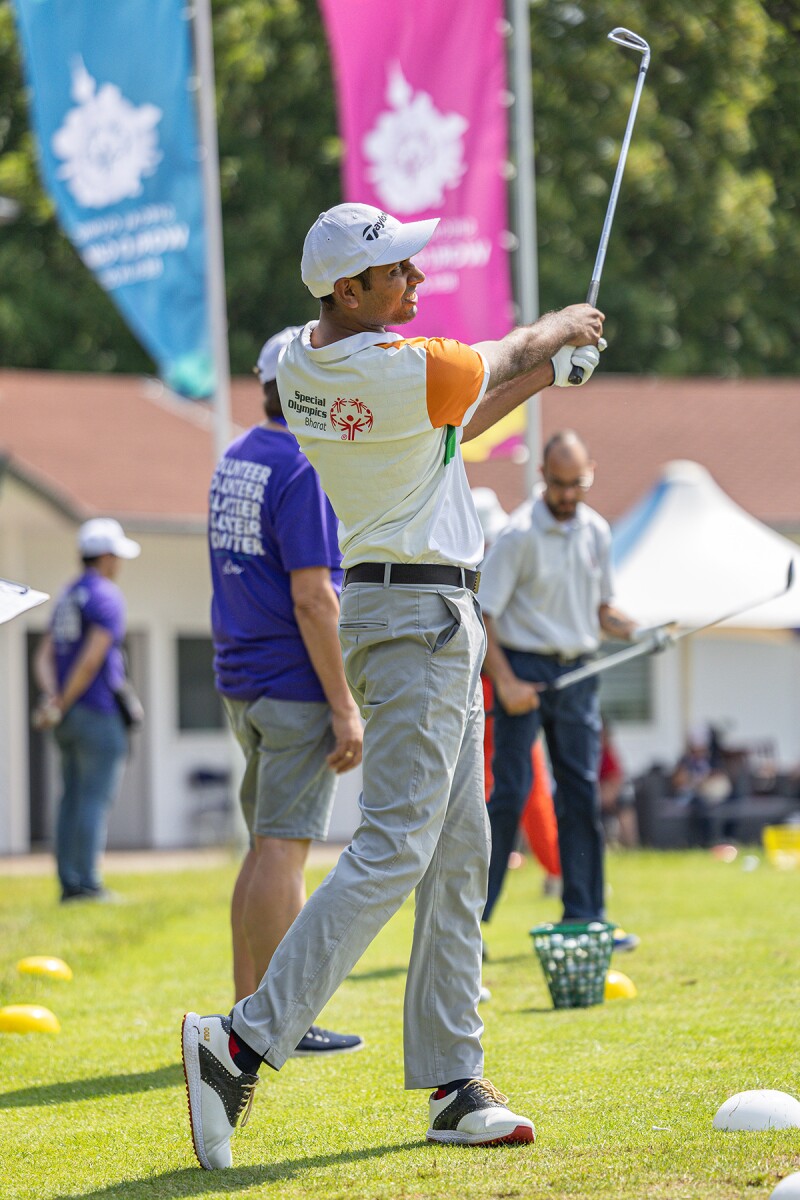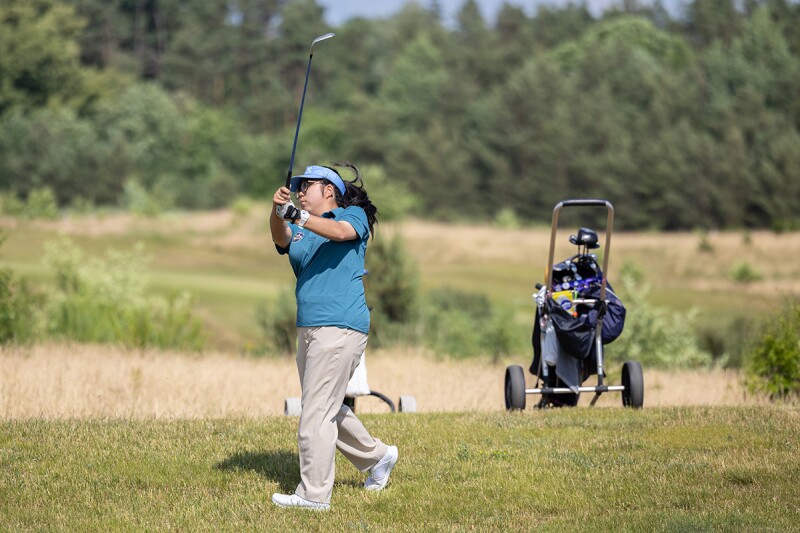
In 2023, Topgolf and Special Olympics joined forces in a new global partnership with one driving ambition—to get more Special Olympics golfers playing the game.
Golf is a popular sport across the Special Olympics movement with 93 national programs offering training and competition globally. It was first featured at the Special Olympics World Games in 1995 in New Haven, Connecticut as a demonstration sport at the Yale University Golf Course. Today, there are more than 27,000 Special Olympic golfers playing alongside 6,670 Unified partners (players without intellectual disabilities) and supported in their training and development by some 4,000 coaches.

However, as explained by Special Olympics International’s Vice President of Sport Development, Jon-Paul St. Germain, growing the game further and opening-up new opportunities to golfers with intellectual disabilities has historically been a challenge.
“Standard grass golf can be time consuming, expensive, and physically strenuous. It is not always the obvious or easiest sport to take up and so that limits the opportunities for growing the sport of golf and reaching new players.” – Jon-Paul St. Germain
Step-forward Topgolf, a golf driving range game with electronically tracked golf balls that started in Dallas Texas in 2000 and has since rapidly expanded to include locations across the US and internationally, including the United Kingdom, Australia, Germany, Mexico, Thailand and the United Arab Emirates.
Topgolf and Special Olympics agreed a historic new partnership that provides an innovative new platform and competition allowing for more inclusive golf. The partnership also sees Topgolf established as a sanctioned Special Olympics Unified event bringing together golfers with and without intellectual disabilities to train and compete together.

“At Topgolf, we aim to make the game of golf more accessible, and we couldn’t be more excited and honored to partner with Special Olympics on bringing this goal to life. Seeing Special Olympics athletes competing in Topgolf makes our hearts soar and the fact that we have people working at Topgolf who are also Special Olympics athletes just makes it even better,” commented Tiffany Brush, Topgolf’s Director of Charitable Initiatives.
Though still in its infancy, the new partnership is already seeing great success with thousands of Special Olympics golfers driving their game forward and taking part in monthly training sessions and competitions across 80 Topgolf venues in the United States, England and Scotland.
Topgolf and Special Olympics partnered together to create a new platform and competition space for Special Olympics golfers to hone their skills, meet new people and compete in golf. Today, there are thousands of Special Olympics golfers taking part in monthly training sessions and competitions at Topgolf that span across venues all over the United States and Great Britain.
This exciting team-up between Special Olympics and Topgolf has opened doors to golf for Special Olympics (SO) athletes who may not have the ability or access to regular golf courses in their area. The partnership with Topgolf has lowered the barriers that have kept, and still keep, many people with and without an intellectual disability (ID) from playing the sport. After the COVID-19 pandemic, golf has been on a steady increase in both Topgolf and grass-course golf participation.
Standard grass golf can be time consuming and expensive. Alternatively, Topgolf provides a consistent environment that allows athletes to compete at a level they are comfortable with, while tracking their shots and providing on the spot coaching and feedback through the top-tier electronic systems in each bay.
“As an avid golfer and Special Olympics volunteer, the Topgolf program has changed the way I view the sport of golf in many ways. This program has allowed us to truly expand the opportunities for people of all abilities to try golf!” said Andrew Fee, Special Olympics Pennsylvania golf coach. “It has also reminded me and others how much joy all of us get from playing and trying new sports. Topgolf has been an amazing addition to the SOPA (Special Olympics Pennsylvania) athletes and is continuing to push the mission of inclusion forward!”
While there has been an increase of Special Olympics golfers participating in golf through Topgolf, it has not lowered the number of SO athletes competing and playing golf on grass courses all around the world. Today, there are 27,078 Special Olympics golfers, 6,670 Unified Partners and 3,902 coaches across 93 delegations competing in golf with Special Olympics. There were also 183 golfers and Unified Partners (107 Male/76 Female) golfers who competed in golf at the Special Olympics World Games Berlin 2023.

The new accessibility of Topgolf for SO golfers has even enticed former Special Olympics Pennsylvania golfer Marissa Niwa to come back to the sport after more than 20 years of not competing competitively. This kind of participation shows the want to play golf is still at the forefront of SO golfers’ minds. Even as some golfers have gotten older and may not be able to navigate a grass course as easily as they once could, Topgolf has become a perfect solution in that situation to get people involved back in the sport.
With Topgolf’s international expansion into Australia, Columbia, Germany, Indonesia, Mexico, Portugal, Spain, Thailand and the United Arab Emirates, it is on the path to globalizing a modern way for anyone to play golf. No matter the ability level or experience, Special Olympics athletes will have the opportunity to pick up a club at any Topgolf around the world as they train with fellow golfers, learn from coaches and compete.
The ability for athletes to use the built-in tracking Toptracer technology systems provided at all Topgolf venues, as well at thousands of third-party golf courses and venues around the world, allows golfers in any country to compare their statistics and results to others and compete with one another from afar, both nationally and internationally.
Breaking down the long-standing traditional ways that golf has historically been played creates a more inclusive environment and gives people without ID the opportunity to see Special Olympics golfers compete on a weekly basis. This visible representation of Special Olympics golfers competing at Topgolf venues helps to change the ideas and stereotypes that people continue to have due to a lack of education about ID and people with ID; the more people can see Special Olympics golfers in action, the more they can see they are true athletes within the sport of golf.
Part of Special Olympics’ relationship with Topgolf, the two partnered together to raise money and awareness of golf as a Special Olympics sport through Topgolf’s “Season of Giving” fundraiser. This fundraiser not only brought in money for Special Olympics to continue to expand its golf programs and opportunities for its athletes, but also spread awareness through the existing Topgolf community of the impact of the Special Olympics movement.



